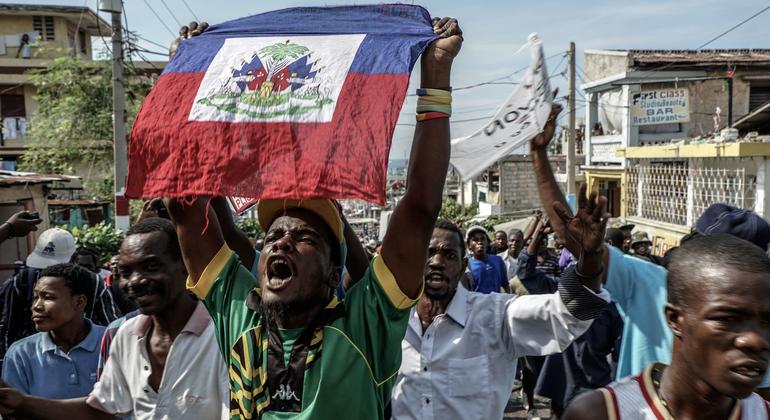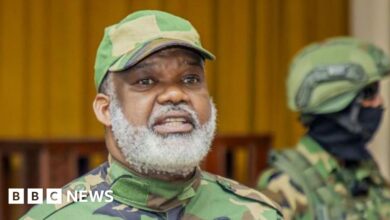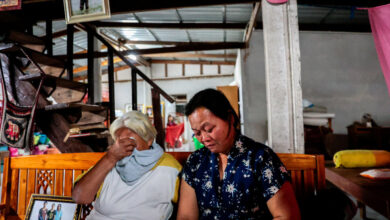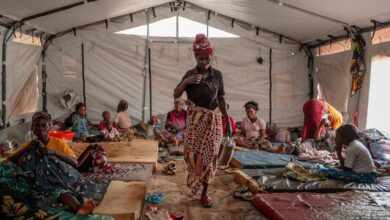Haiti’s fate is ‘bright’ despite the horrifying escalation of violence

Haiti is facing a multifaceted crisis that includes rising gang violence, political instability, more than 700,000 displaced people, as well as widespread hunger.
UNICEF reported a sharp increase in the recruitment of minors by armed gangs, with the number recruiting children increased 70% in the past year.
Ulrika Richardson, United Nations Resident and Humanitarian Coordinator in Haititalked to UN News about what United Nations is working to support the people of Haiti.
This interview has been edited for clarity and brevity
United Nations News: How would you describe the current situation in the country?
Ulrika Richardson: There has been a frightening escalation of violence in some areas of Haiti, which is tearing at the social fabric. There were horrific massacres in the last three months of the year both in the capital Port-au-Prince and in nearby l’Artibonite.
These brutal acts of inhumanity will only deepen the collective pain of the Haitian people.

Ulrika Richardson (right) meets a cocoa farmer in western Haiti.
We cannot ignore this reality. We must focus on these horrific events in response, urgently expanding psychological support and mental health programs, and integrating them into our long-term stabilization plans.
As the United Nations, we pledged to stay in Haiti to help the most vulnerable get through the current crisis.
We need to protect those who are now in extremely vulnerable situations, especially in Port-au-Prince, where security forces simply do not have the capacity to protect citizens.
This means assisting hundreds of thousands of internally displaced people.

A child whose family fled violence sits in a makeshift shelter in Port-au-Prince.
Families have left their homes, often multiple times, so we can begin to imagine the severity of the trauma they carry and we must ensure that they live in the right conditions. kindly event.
Therefore, right nowSecurity is a prerequisite before addressing humanitarian challenges and then working towards long-term recovery.
United Nations News: It seems like every step you take has two steps back. The deployment of the Multinational Security Assistance Mission appears to have stalled.
Ulrika Richardson: Of course, we hope the situation will improve. We will never give up hope and are working closely with the government, transition agencies, civil society and the private sector to make 2025 a better year than 2024.

Workers in Haiti prepare humanitarian aid for distribution.
Despite strong leadership from Kenya on the non-UN multinational security support (MSS) mission, which we truly welcome, the mission is still in the pre-implementation phase because lack of adequate funding from the international community. We have received important contributions but they are still very limited so more is needed.
Additional support is underway. We just heard that MSS [mission] will receive more uniformed personnel and equipment. The move underscores a continued commitment to strengthening security in the country, an important step toward advancing humanitarian and development efforts in Haiti.
How important is security for political stability?
The Haitian government is committed to an ambitious electoral agenda, including constitutional reform, which requires investment in economic recovery and social peace.
Security is essential to creating an environment where citizens can and want to vote. But it is necessary to redouble the efforts of UN member states on all fronts today, not tomorrow when it is too late.
Haiti’s destiny is as bright as any other country. It needs to reclaim its place in the world as a symbol of hope, independence and freedom. There were a lot of mistakes, but we need to learn from yesterday and see how we can improve things.
United Nations News: Can you expand on these mistakes?
Ulrika Richardson: If we look at the economic drivers, why has there been no investment in the country’s production capacity? Currently, insecurity has discouraged foreign investors because they need some form of guarantee of stability.
However, after the 2010 earthquake, there was a lot of investment, which was rare in any country before for a country of its size. But how much of that is invested back into strengthening Haiti’s institutions?

Police cars pass by the General Hospital in Port-au-Prince.
It is equally important to ensure that Haitians lead this process. I speak as a non-Haitian but of the United Nations in Haiti and acknowledge Haiti’s historic role as a founding member state of the United Nations. So our engagement is guided by deep respect for Haiti’s leadership and the vision of the Haitian people.
United Nations News: Talking about the future, the first thing people think of is youth.
And youth in Haiti are at the center of discussions around development and security. What steps do you see as important in the coming year to empower them and prevent their recruitment into armed gangs?
Opportunities. They need alternatives. We have and need to continue to research what these alternatives are. We want young people and children to be able to become members of the community.
Some young people are forced to join gangs and there is a reason for this.
If you couldn’t leave the capital because finding work elsewhere meant risking your life on gang-controlled streets with no job opportunities where you lived, your parents could have been killed. and education is not an option, so what? What do we expect them to do?
Many children as young as 8 years old are currently being recruited by gangs to run errands and act as informants.
Unfortunately, arms trafficking continues despite the sanctions regime. We need to have a process in place and a much better response rate from neighboring actors.
This is not impossible, there are abundant human resources out there, there is a lot of creativity and desire to create something better for the country than before.




